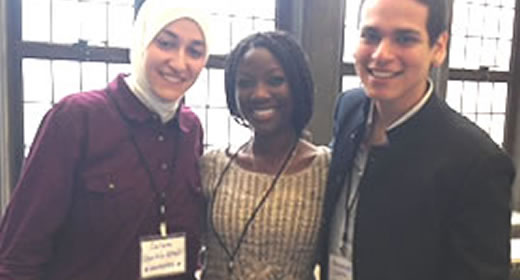
Brittany Jones (BA '14) was recognized as a 2014 Central Campus Rev. Dr. Martin Luther King, Jr. Spirit Award recipient during the 28th annual MLK Symposium on January 25. The Ninth Annual Central Campus Rev. Dr. Martin Luther King, Jr. Spirit Awards honored students from the schools and colleges on Central Campus who best exemplify the leadership and extraordinary vision of the civil rights leader. Students were nominated by faculty and staff from the Business, Education, Kinesiology, Literature, Science, and the Arts, Nursing, Pharmacy and Public Policy programs.
Hailing from Ypsilanti, Michigan, Brittany devotes her time to ensuring that all students at the University of Michigan experience an inclusive living and working environment. She serves as a Diversity Peer Education (DPE) for over 1200 first year students in Bursley Residence Hall. In this position, she co-advises the hall's multicultural council, which provides leadership opportunities within the dorm for residents, hosts social justice programming, and funds campus organizations that promote social justice awareness. She also collaborates with Resident Advisors on forums that offer a safe space for students to engage in difficult conversations regarding social identifies and their experiences on campus.
Brittany also works to foster an inclusive community at the Ford School, where she co-founded the undergraduate-led Diversity Student Coalition (DiSC). The organization has led two Ford School Diversity Summits to further discussions among staff and faculty regarding diversity, student conflict resolution, and the effect of identity on the policy making process. Over 70 individuals participated in the Fall 2013 summit, including faculty, staff and students from both the Ford School and across campus.
Brittany is driven by her strong belief that inclusivity is crucial to an improved policy making process. She stressed this to the Selection Committee, stating:
"In my studies at the Ford School, I have noticed that often those who are most vulnerable are sometimes negatively impacted by social policy and often do not have a seat at the table during policy development. I think that both communities and policies are richer, more effective and more humane when they are more inclusive."